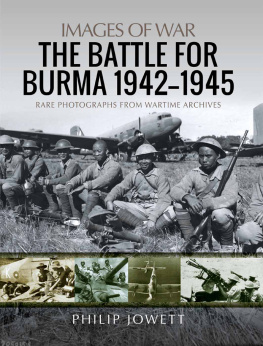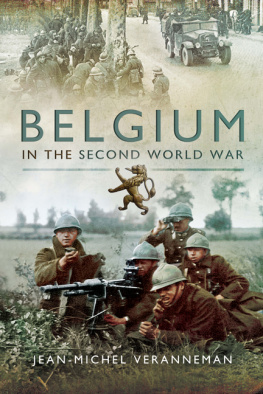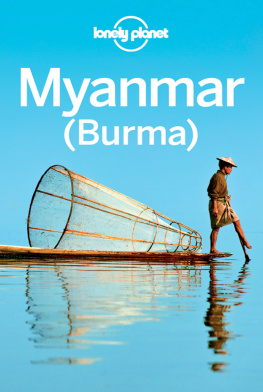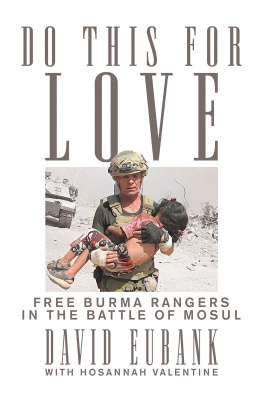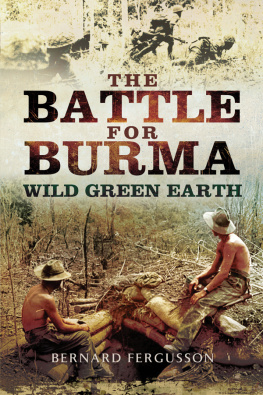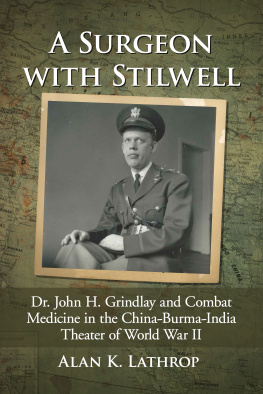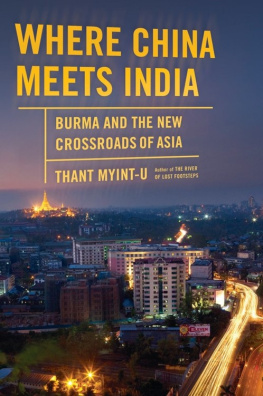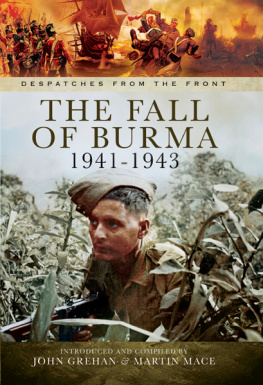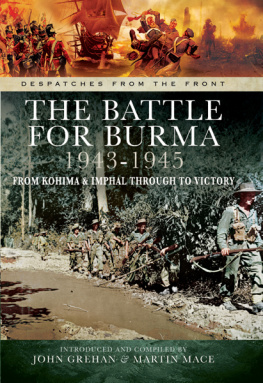

First published in Great Britain in 2004 by
Pen & Sword Military
an imprint of
Pen & Sword Books Ltd
47 Church Street
Barnsley
South Yorkshire
S70 2AS
Copyright John Randle, 2004
9781783409488
The right of John Randle to be identified as Author of this Work has
been asserted by him in accordance with the Copyright,
Designs and Patents Act 1988.
A CIP catalogue record for this book is
available from the British Library
All rights reserved. No part of this book may be reproduced or trans
mitted in any form or by any means, electronic or mechanical including
photocopying, recording or by any information storage and retrieval
system, without permission from the Publisher in writing.
Typeset in Sabon by
Phoenix Typesetting, Auldgirth, Dumfriesshire
Printed and bound in England by
CPI UK
Pen & Sword Books Ltd incorporates the imprints of Pen & Sword
Aviation, Pen & Sword Maritime, Pen & Sword Military, Wharncliffe
Local History, Pen & Sword Select, Pen & Sword Military Classics and
Leo Cooper.
For a complete list of Pen & Sword titles please contact
PEN & SWORD BOOKS LIMITED
47 Church Street, Barnsley, South Yorkshire, S70 2AS, England
E-mail: enquiries@pen-and-sword.co.uk
Website: www.pen-and-sword.co.uk
To all those soldiers of the Seventh Battalion
The (10th) Baluch Regiment
who served in the Burma Campaign
(1942 1945).
FOREWORD
By
The Rt. Hon. The Viscount Slim
World War Two produced the largest volunteer Army of nearly three million soldiers from the then Indian Empire. Without it Great Britain and her Allies would have had difficulty in mustering sufficient forces to defeat the Germans, their Italian allies, and the Japanese Empire.
By 1945 this great Old Indian Army recruited across its Subcontinent from the numerous martial tribes, of all religions and cultures, had proved itself in battle and greatly enhanced its fighting reputation in the major Theatres of the War.
Success came from the courage, loyalty, discipline and the resolute fighting qualities of the Indian Soldier. Above all by the inspired leadership of his British and Indian Officers together with their Viceroy Commissioned Officers. A unique combination of successful leadership.
John Randle writes with gentle affectionate pride of his Indian Soldiers in the famous Baluch Regiment. He is perhaps overly modest in describing the many ferocious close-quarter encounters and battles in which he lead his men. To survive some four years of almost constant action may be lucky, but it takes and becomes a true warrior leader to turn and turn again towards an enemy as brave, stubborn and vicious as the Jap.
This personal and special book gives the reader pause to ponder and learn, particularly how very fortunate The Old Indian Army was to have so many outstanding Officers like the Author.
SLIM
House of Lords
2004
Acknowledgements
As in any literary venture, even of this modest nature, the author has to be warmly grateful for the help, advice and encouragement of a number of people.
Principal among these is Charles Coubrough, comrade-in-arms, old friend and author of a fine wartime book himself. His encouragement to publish what was originally intended as a private piece of writing, and his practical help and advice have been invaluable; without it, this book would never have been published.
Similar warm thanks must go to Major General Colin Shortis, regimental friend from the Devonshire and Dorset Regiment, whose encouragement, wisdom and practical help with the manuscript have been invaluable, and to John Nunneley, friend and old Burma Hand who took so much trouble to help me polish up the manuscript and whose literary and publishing experience have been so supportive. I am grateful too to General John Wilsey, another Devon and Dorset regimental friend, for his introduction to Brigadier Henry Wilson of Pen and Sword Publications, who has skilfully combined the role of business-like publisher and helpful counsellor.
My gratitude also goes to Lord Slim, President of the Burma Star Association and of course the soldier son of our inspiring leader in Burma, General, later Field Marshal, Bill Slim, for so kindly writing an undeservedly generous Foreword.
I am most grateful to Clifford Martin, Tommy Bruin and Roderick MacLean, friends and fellow 7th Baluchis, with help on facts and dates and general advice.
Profound thanks are due to Mrs Chris Dare, who, after years deciphering my appalling handwriting at Regimental Headquarters of the Devonshire and Dorset Regiment, has, in her retirement, been a tower of strength with her immaculate typing.
Finally, but of the greatest significance, I acknowledge with deep gratitude all the encouragement that my wife Peggy gave me to write the original manuscript in the early 90s and before the sad onset of Alzheimers Disease.
July 2003
Preface
I originally wrote these stories some years ago for a very limited private circulation to family and close friends, who have now encouraged me to publish them. I naturally gave much thought and took advice as to how I should present them. In the first place there is a very full account of my battalions fighting in the History of the Baluch Regiment in WW2, and I certainly did not wish to appear to be writing another. Secondly, there have been plenty of books about the Burma fighting Japanese Banzai bayonet attacks, close-quarter fighting, bloodshed and the horrors of war and though I did have my fair share of these, I wanted to avoid taking that well-trodden path. So, rather than write a conventional and continuous memoir, I decided to recount a collection of separate stories, some serious and some lighthearted, some quite long and some mere vignettes. I then ran into a snag. When I first wrote them, thirteen years ago, it was essential to make each story complete within itself, and this became even more important when a number of them were published separately in service journals. This obviously involved setting out a short introductory paragraph of the general background to each story. It was also important to keep the story concise and to the point, and avoid digression into extraneous background, particularly of personalities, and I have decided to maintain that literary discipline rather than completely rehash them to the detriment of the balance of the story. It does mean, however, that there is occasionally some minor repetition, for which I ask the readers forbearance.
However, an infantrymans war is, above all, about men. I then realized that, in striving for succinctness, it might seem that I was not interested in the men of all ranks who were my comrades-in-arms and friends, even though they were a fundamental part of my life in those far-off days, and, despite the years, in many cases, remain so still. I have therefore given at Appendix A a profile of everyone mentioned in the stories, so that the reader who may be interested can see how fortunate I was. I have also interspersed the stories with an occasional brief Background Events, so that they can be viewed chronologically against the wider and relevant part of the long-drawn-out Burma Campaign.






